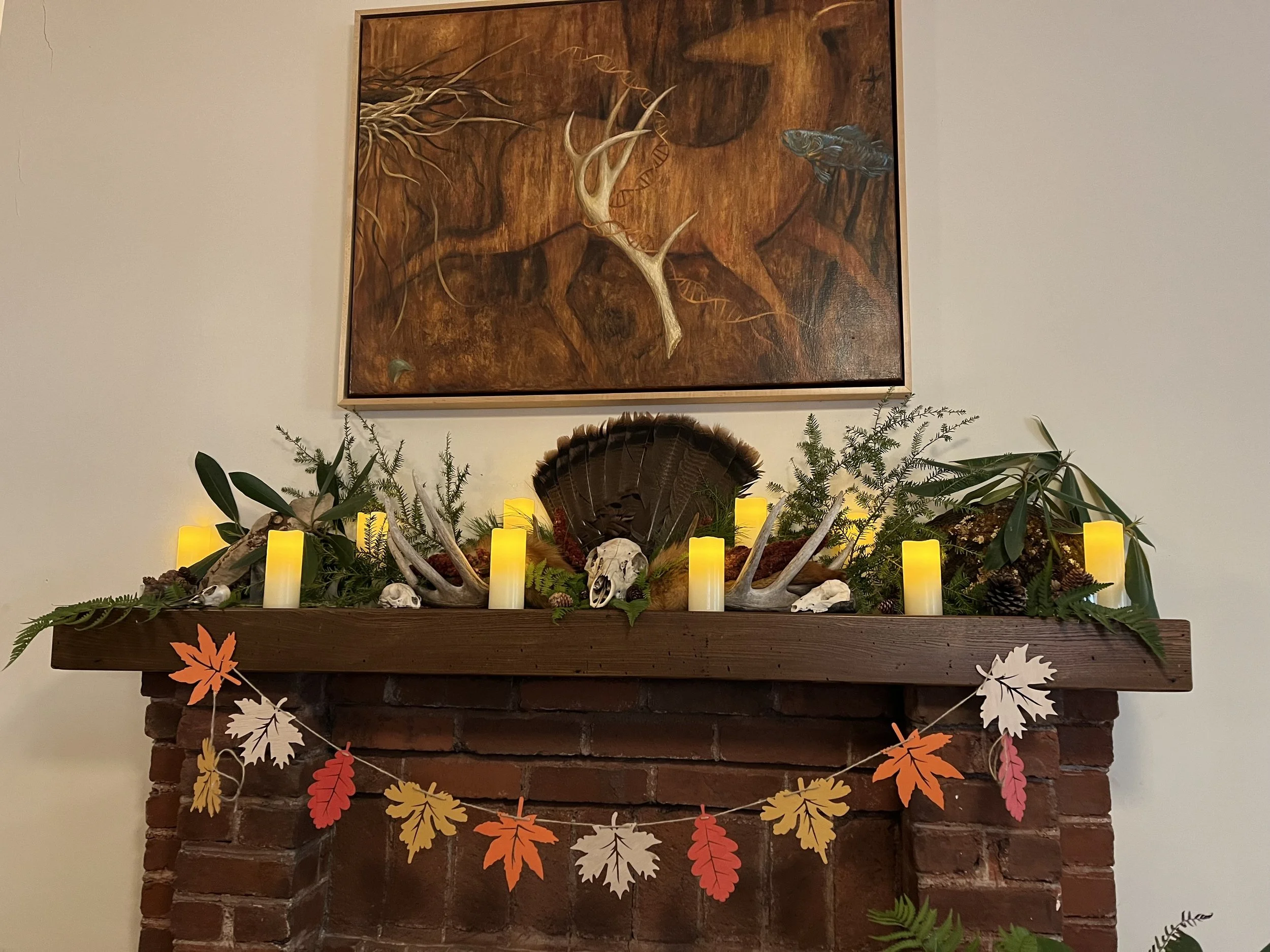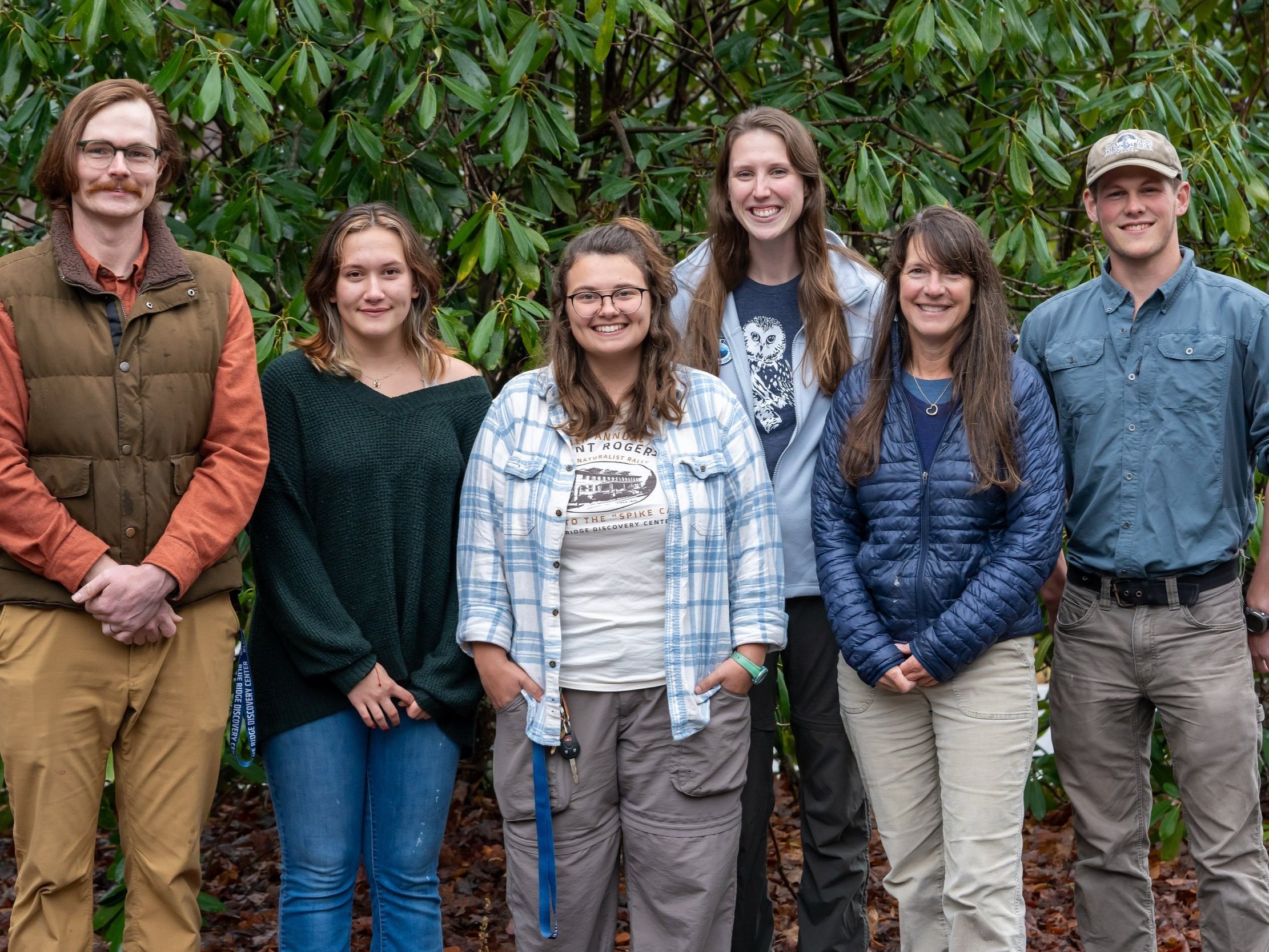

Centennial Celebration Recap
Our annual Friendsgiving Potluck was a success! This year we also celebrated the 100 year anniversary of the Schoolhouse with presentations by historian Ed David and personal accounts by KTS alumni. We wove our own stories into the history of this building by compiling a Time Capsule with instructions to open it in 2125!

Expressing Gratitude
This time of year is all about gratitude, and here at the Blue Ridge Discovery Center, we have a lot to be thankful for.

Turkeys Have a Reason to be Thankful Today
You wouldn’t think that turkeys have much reason to be thankful given their place as the centerpiece of Thankgiving dinner, but since their decline to near extinction in the 1930's, turkeys in the Blue Ridge are a wildlife management success story.